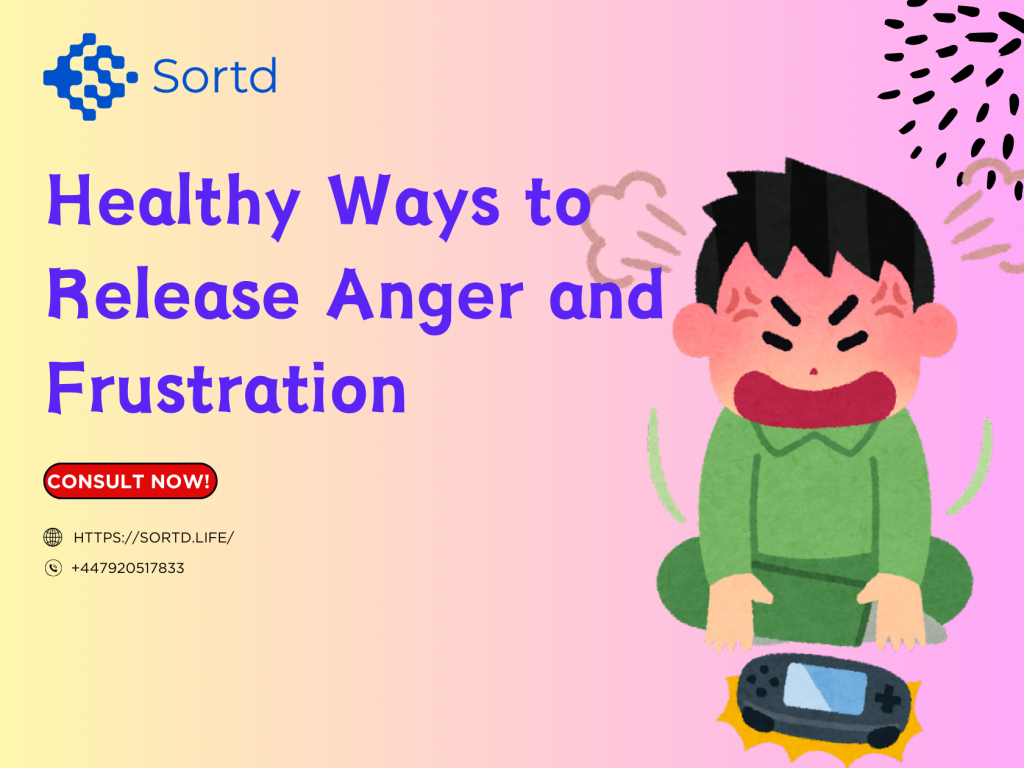
Healthy Ways to Release Anger and Frustration
Feeling anger and frustration is a natural part of the human experience, but how we choose to manage and release these emotions can significantly impact our well-being. Instead of letting anger simmer or explode, adopting healthy strategies can lead to emotional release and a more positive mindset. This guide explores various healthy ways to release anger and frustration.
1. Physical Exercise:
Engaging in physical activity is a powerful outlet for releasing pent-up frustration. Whether it’s jogging, cycling, or hitting the gym, exercise helps release endorphins, the body’s natural mood elevators, promoting a sense of calm.
2. Deep Breathing and Meditation:
Practice deep breathing or meditation to center yourself. Focus on inhaling and exhaling slowly, allowing your body to relax. Meditation techniques, such as mindfulness, can help you gain control over your emotions and promote a sense of inner peace.
3. Creative Outlets:
Expressing yourself through creative activities can be therapeutic. Consider painting, writing, or playing a musical instrument to channel your emotions into a constructive and artistic outlet. Understanding the Physical Manifestations of Anger Issues
4. Verbal Expression:
Talking about your feelings with a trusted friend, family member, or therapist provides an opportunity to release pent-up emotions. Verbalizing your thoughts can provide clarity and offer an external perspective.
5. Journaling:
Keep a journal to document your feelings. Writing allows you to process emotions, identify patterns, and gain insights into the root causes of your anger. It’s a personal space for self-reflection and emotional release.
6. Progressive Muscle Relaxation (PMR):
PMR involves systematically tensing and then relaxing different muscle groups. This technique helps release physical tension, promoting relaxation and reducing overall stress levels.
7. Engage in a Hobby:
Immerse yourself in a hobby or activity you enjoy. Whether gardening, cooking, or playing a sport, diverting your attention to something you love can be a positive distraction. Take Couples Counseling Manchester
8. Practice Assertiveness:
Learn to express your needs and boundaries assertively. By communicating effectively, you can prevent feelings of frustration from building up over time, leading to healthier relationships.
9. Take a Break:
If possible, remove yourself from a stressful situation. Taking a short break, whether it’s a walk outdoors or a moment of quiet, can provide the space needed to regain composure.
10. Seek Professional Help:
If anger and frustration persist, seeking professional help is a proactive step. Therapists and counselors can provide coping strategies, tools, and support tailored to your individual needs. Connect with a professional Mental Health Therapist in UK
Conclusion:
Releasing anger and frustration healthily is crucial for mental and emotional well-being. By adopting these strategies, you empower yourself to navigate challenges with resilience, fostering a positive and constructive approach to managing your emotions. Embrace these techniques as tools for self-discovery and emotional growth, turning moments of frustration into opportunities for personal empowerment and lasting peace.
